Phonics development Phonics Worksheets for Ages 4-8
5 filtered results
-
From - To
Unlock your child's reading potential with our phonics worksheets for ages 4-8, designed to enhance phonics development through engaging activities. These worksheets combine fun with purposeful learning, focusing on essential skills such as letter sounds, blends, and phonemic awareness. Perfect for home or classroom use, our resources cater to varying learning styles, fostering confidence in early readers. Explore colorful illustrations and interactive tasks that make learning to read enjoyable. By providing your child with the tools they need to master phonics, you set the foundation for lifelong reading success. Discover our comprehensive collection today and ignite a love for learning!
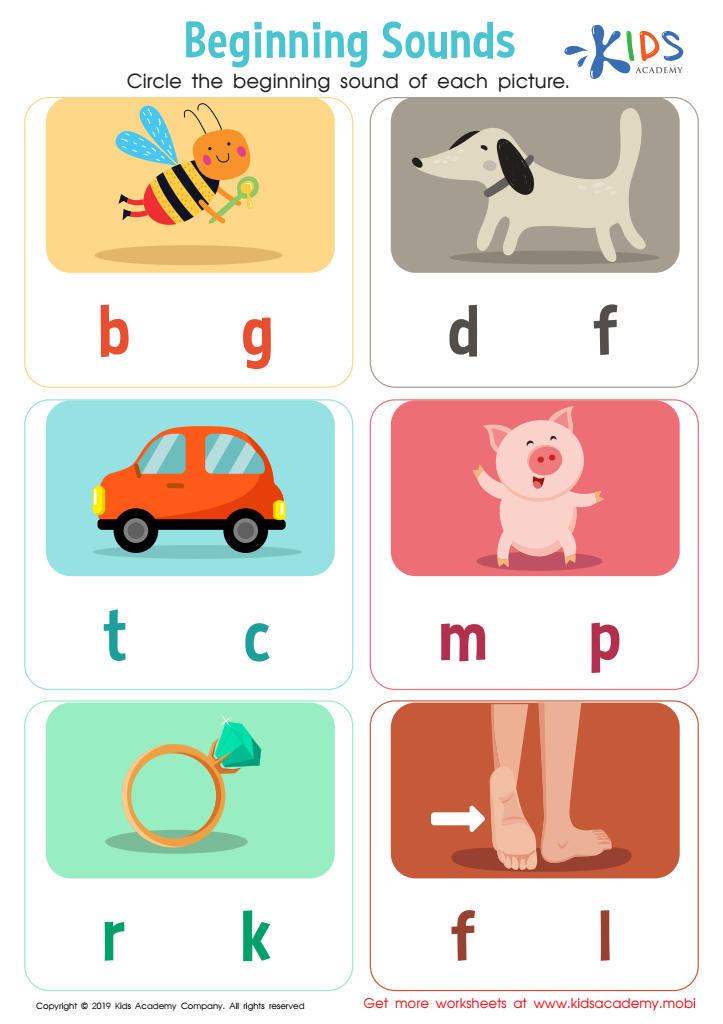

Beginning Sounds Worksheet
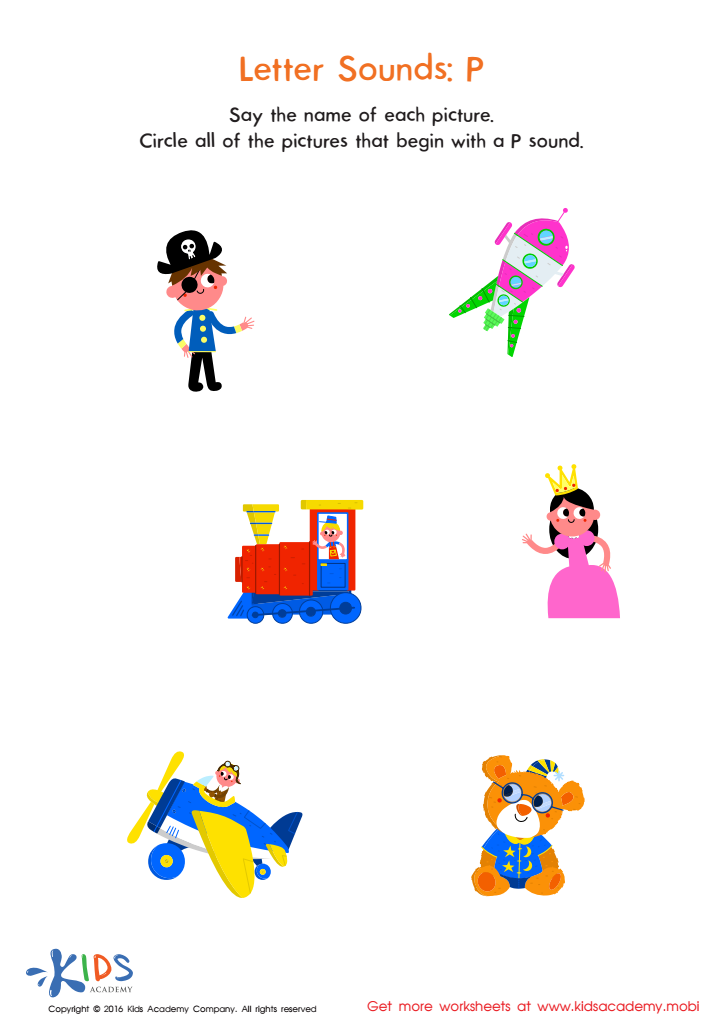

Letter P Sound Worksheet
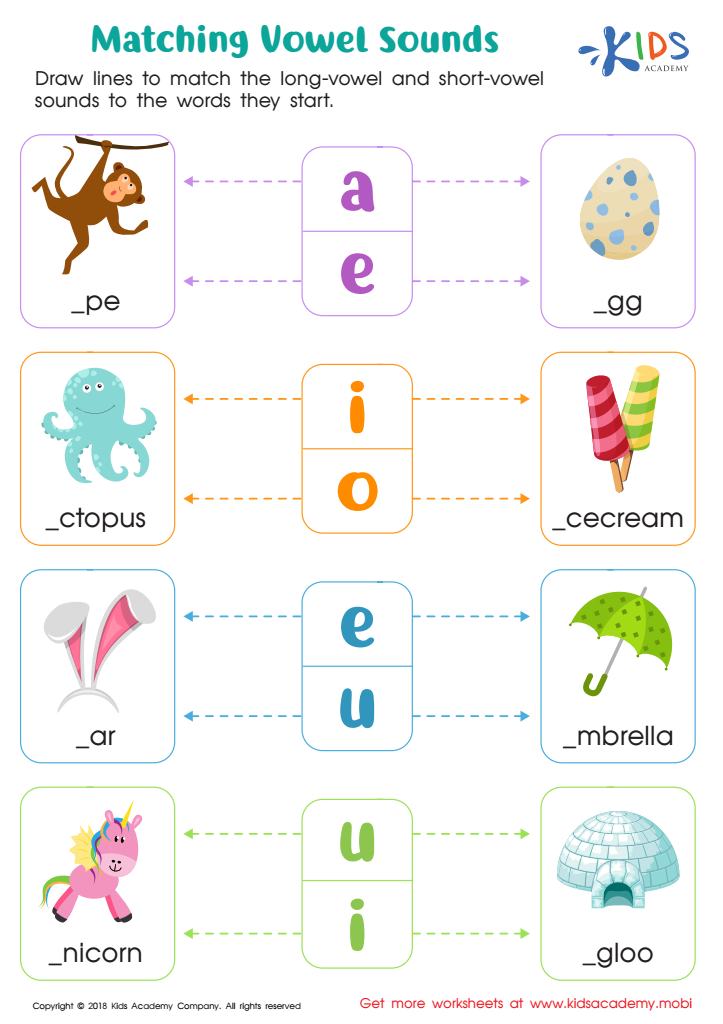

Matching Vowel Sounds Worksheet
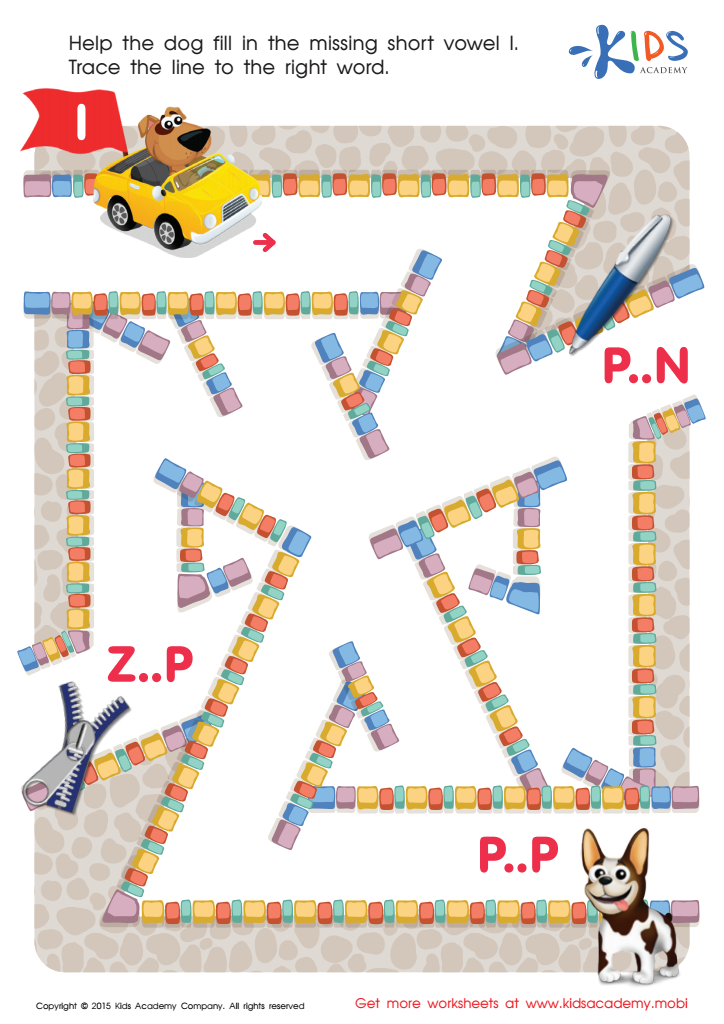

Short Vowel Sound I Worksheet
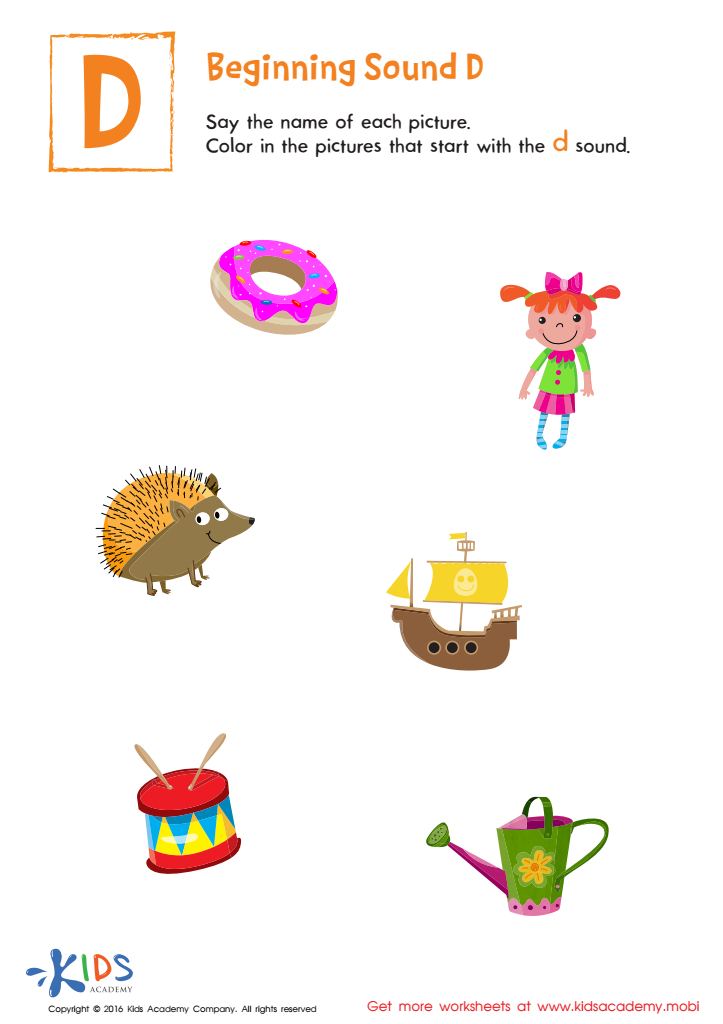

Beginning Sound D Worksheet
Phonics development is crucial for children aged 4-8 as it lays the foundation for their reading and writing skills. During these formative years, children are beginning to grasp the relationship between sounds and letters, which is essential for decoding words. Understanding phonics helps young learners to sound out unfamiliar words, promoting confidence and fluency in reading.
Moreover, a strong phonics background aids in spelling and the overall ability to communicate effectively. It also supports comprehension skills, as children who can decode words efficiently can focus more on understanding the content rather than getting stuck on pronunciation.
For parents and teachers, fostering phonics development is vital as it directly influences a child's academic trajectory. Early intervention in phonics awareness can prevent future difficulties and ensure that children are well-prepared for more complex literacy tasks. Engaging with children in phonics activities, such as rhyming games and letter recognition, can create a positive and enjoyable learning environment, enhancing their love for reading.
Promoting phonics not only boosts literacy skills but also cultivates critical thinking and problem-solving abilities that are essential for lifelong learning. Therefore, supporting phonics development should be a priority for all caregivers and educators.

 Assign to My Students
Assign to My Students




















